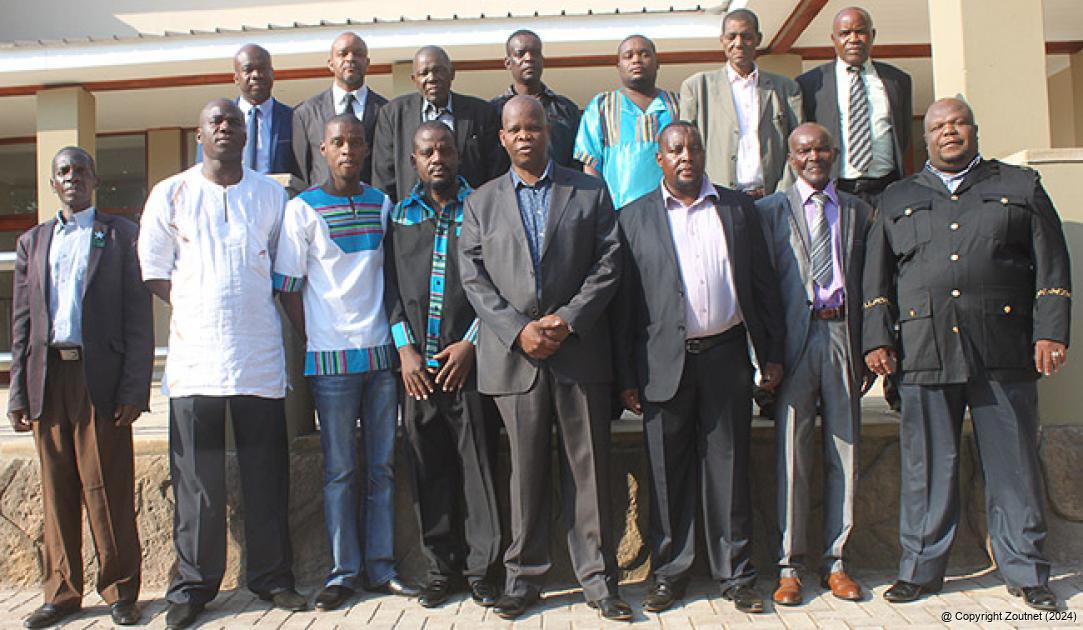
Vhavenda king Toni Mphephu Ramabulana (centre), surrounded by several khosi during the seminar.
News - Date: 29 April 2015
“The history of the traditional leaders must be written down, so that future generations can know it,” said Mr Abraham Sithole, chief director of the National Traditional House.
He addressed Venda traditional leaders during a two-day seminar at Tshipise a fortnight ago.
Sithole called on traditional leaders to follow the law when installing chiefs and headmen, to avoid friction in the communities. “All people who engage in processes of installing people as chiefs and indunas should follow the law as set down by the provincial government. Those that are not done according to the law should be stopped, as they will create problems for the government and the community in the long run,” he added. He also said those appointed in an unlawful manner would not be recognized by the government.
Sithole has warned traditional leaders to stop the illegal installation of chiefs and headmen in their areas. He said that a dzekiso wife was the one nominated by the royal family to bear akhosi or chief. "Should there be a need (for a dzekiso wife), the royal family will proceed to look for a dzekiso wife even without the cooperation or concert of the ruling traditional leaders”. He mentioned that an "unusual practise" was happening nowadays, "where you find that family members start to cause conflicts about who should rule when a Khosi dies.
"We all know that one is born into a clan of chieftaininty to qualify for the throne of headman, senior traditional leader and being king,” said Vhavenda King Toni Mphephu Ramabulana. According to him, traditional leaders should respect the chieftainship, because the forefathers of the Vhavenda fought for it during the times of colonialism. He also stated that the khosi and royal families should refrain from relying on the courts as a way of solving chieftaincy issues. They should follow the correct channels and it should be discussed during a gathering of the relevant members of the royal family. He said that no single individual person could appoint a new chief as it was the responsibility of the royal family.
He explained that, according to Venda culture, the chieftaincy (vhuhosi) is the property of the family and the chief is the manager of the property. When the chief passes on, the property goes back to the family.”The appointment of the successor will thus be the responsibility of the royal family,” he said.








